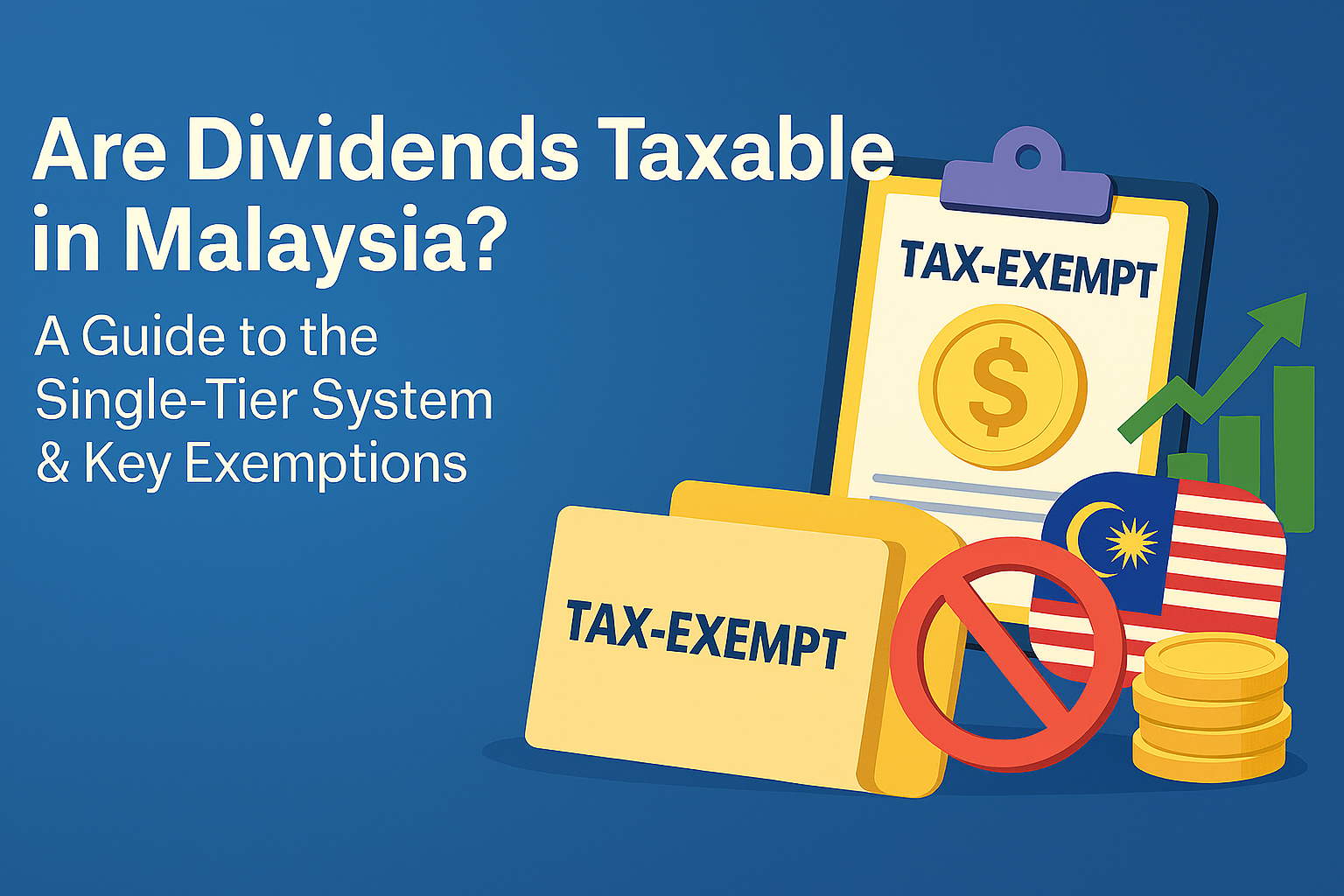A common question for company directors and investors alike is, “Do I need to pay income tax on the dividends I receive?” For years, Malaysia’s tax system has been designed to prevent the double taxation of company profits, but recent discussions around tax reforms have brought this topic back into focus.
Based on the latest clarifications from the Inland Revenue Board (LHDN) following the 2025 Budget, this guide will explain the fundamental principles of dividend taxation in Malaysia and detail the specific types of dividend income that are officially tax-exempt.
The Foundation: Malaysia’s Single-Tier Tax System
The most important concept to understand is that Malaysia operates a single-tier dividend tax system.
What does this mean? It’s simple:
- A company earns profits.
- It pays corporate income tax on those profits.
- The tax paid by the company is considered the final tax.
- When the company distributes its after-tax profits to shareholders as dividends, those dividends are no longer taxable in the hands of the shareholders (whether the shareholder is an individual or another company).
This is why, for the vast majority of dividends received from Malaysian companies, you do not need to declare them as taxable income.
Specific Types of Tax-Exempt Dividends
Beyond the general single-tier system, official guidelines have clarified that several other specific types of dividend income are also exempt from Malaysian tax. These include:
- 1. Dividend Income from Abroad: Dividends received from foreign sources that are remitted back to Malaysia are generally exempt from tax, subject to specific conditions set by LHDN to encourage the repatriation of funds.
- 2. Dividends from Companies with Tax Incentives: If a company has been granted tax incentives like Pioneer Status or Reinvestment Allowances by the Malaysian Investment Development Authority (MIDA), its profits are exempt from tax for a certain period. Dividends distributed from these tax-exempt profits are also tax-free for the shareholders.
- 3. Dividends from Tax-Exempt Shipping Companies: Malaysian shipping companies operate under a special tax regime where their shipping profits are exempt. Consequently, dividends paid out from these profits are also exempt.
- 4. Dividends from Cooperatives and Closed-End Funds: Distributions from cooperatives (
koperasi) and dividends declared by closed-end funds are also specified as being exempt from tax. - 5. Dividends from Labuan Entities: Dividend income received by Malaysian residents from companies established in the Labuan International Business and Financial Centre (IBFC) are exempt from tax.
The Importance of the Dividend Voucher
How do you prove to LHDN that the dividend you received is tax-exempt? This is the crucial role of the Dividend Voucher.
When a company pays a dividend, it must issue a voucher to the shareholder. This voucher will contain details of the payment and, most importantly, should state that the dividend is tax-exempt under the single-tier system. This document is your official record for tax purposes.
What This Means for You
- For Individual Investors/Shareholders: When you receive a dividend from a Malaysian company, keep the dividend voucher for your records. You generally do not need to declare this as income in your annual tax return.
- For Companies Paying Dividends: It is your responsibility to issue a complete and accurate dividend voucher to all your shareholders for every dividend distribution.
Navigate Your Finances with Clarity
Understanding the tax implications of both paying and receiving dividends is a key part of corporate finance and personal wealth management. At SMONE, our Tax Compliance and Financial Reporting services help business owners manage their corporate tax efficiently and ensure all shareholder distributions are handled correctly. We provide the clarity needed to navigate the complexities of tax incentives and dividend regulations.
Contact us today for expert advisory.
(Disclaimer)
This article is for general informational purposes and is based on HASiL’s responses to the 2025 Budget. It does not constitute legal or tax advice. Please consult with a qualified professional for advice tailored to your specific situation.


